Ever wondered if there’s a natural remedy that can boost your hair growth without expensive treatments? Meet rosemary—a fragrant herb often found in your kitchen but known for its magical benefits for hair. Rosemary for hair growth has gained popularity as people turn to nature for solutions. But is it all hype, or does it truly work? Let’s dive in and find out how rosemary can transform your hair care routine.
Table of Contents
1. What Makes Rosemary Special?

Rosemary is more than just a culinary herb; it’s a natural powerhouse packed with goodness for your hair and overall health. This aromatic herb, native to the Mediterranean, has been used for centuries in traditional medicine and beauty routines. But what makes rosemary so unique, especially when it comes to hair care?
Rich in Nutrients
Rosemary is a treasure trove of essential nutrients, including iron, calcium, and vitamins like B6. These nutrients are vital for maintaining strong and healthy hair, nourishing your strands from root to tip.
Powerful Antioxidants
Rosemary contains antioxidants such as rosmarinic acid and caffeic acid, which fight free radicals. Free radicals can damage hair follicles and lead to hair loss, so rosemary helps protect your scalp and hair from environmental stressors.
Natural Anti-Inflammatory Properties
Inflammation of the scalp can hinder hair growth and cause discomfort. Rosemary’s anti-inflammatory properties soothe the scalp, reducing irritation and promoting a healthy environment for hair follicles to thrive.
Essential Oils
The essential oils in rosemary are where much of its magic lies. These oils are rich in compounds like 1,8-cineole and camphor, which enhance blood flow to the scalp, encouraging hair follicles to produce stronger, thicker hair.
2. How Does Rosemary Promote Hair Growth?
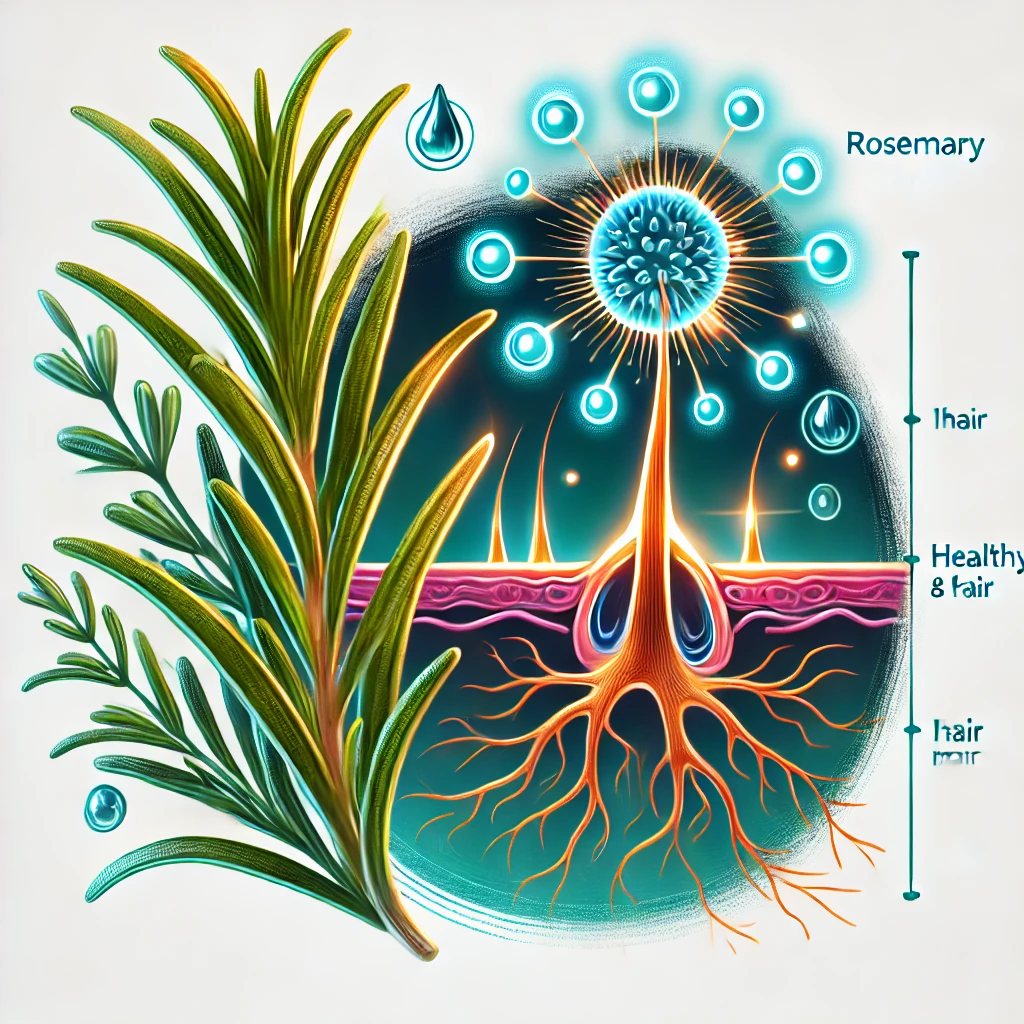
You might be wondering, what’s the science behind rosemary’s ability to boost hair growth? The answer lies in how this humble herb interacts with your scalp and hair follicles. Let’s break it down.
Improves Scalp Circulation
Think of your scalp like a garden. For plants to grow, the soil needs proper nutrients and water. Similarly, your scalp needs good blood circulation to deliver oxygen and nutrients to hair follicles. Rosemary’s natural compounds stimulate blood flow, ensuring your hair roots are well-fed.
Encourages Follicle Activity
Dormant hair follicles are often the reason behind thinning hair. Rosemary wakes up these “sleeping” follicles by stimulating their activity. Over time, this leads to the growth of new hair strands and a fuller appearance.
Combats DHT (Dihydrotestosterone)
DHT is a hormone linked to hair thinning and loss, especially in cases of androgenetic alopecia. Rosemary has been shown to block DHT from binding to hair follicles, slowing down hair loss and promoting healthier growth.
Maintains a Healthy Scalp
A clean and healthy scalp is essential for hair growth. Rosemary’s antimicrobial properties fight off bacteria, fungi, and other microbes that can cause dandruff, itchiness, and inflammation.
By creating the perfect environment for your hair to grow, rosemary does more than just stop hair loss—it sets the stage for stronger, healthier hair.
3. Scientific Evidence Supporting Rosemary

It’s easy to make claims, but what does science say about rosemary for hair growth? Fortunately, research has increasingly supported rosemary’s role in promoting healthy hair.
Clinical Studies
One of the most notable studies, published in 2015, compared rosemary oil to minoxidil (a common over-the-counter hair growth treatment) in individuals with androgenetic alopecia. Over six months, both groups experienced significant hair regrowth, but rosemary oil users reported fewer side effects like itching and scalp irritation.
Rosemary’s Antioxidant Effects
Research highlights that rosemary’s high antioxidant content can reduce oxidative stress—a major factor in hair follicle aging. By protecting follicles from damage, rosemary helps extend their growth phase.
Anti-DHT Properties
Studies suggest that rosemary oil may inhibit the activity of 5-alpha-reductase, an enzyme that converts testosterone into DHT. Since DHT is a primary contributor to hair thinning, rosemary’s ability to block it supports healthier, fuller hair over time.
4. Benefits of Using Rosemary for Hair
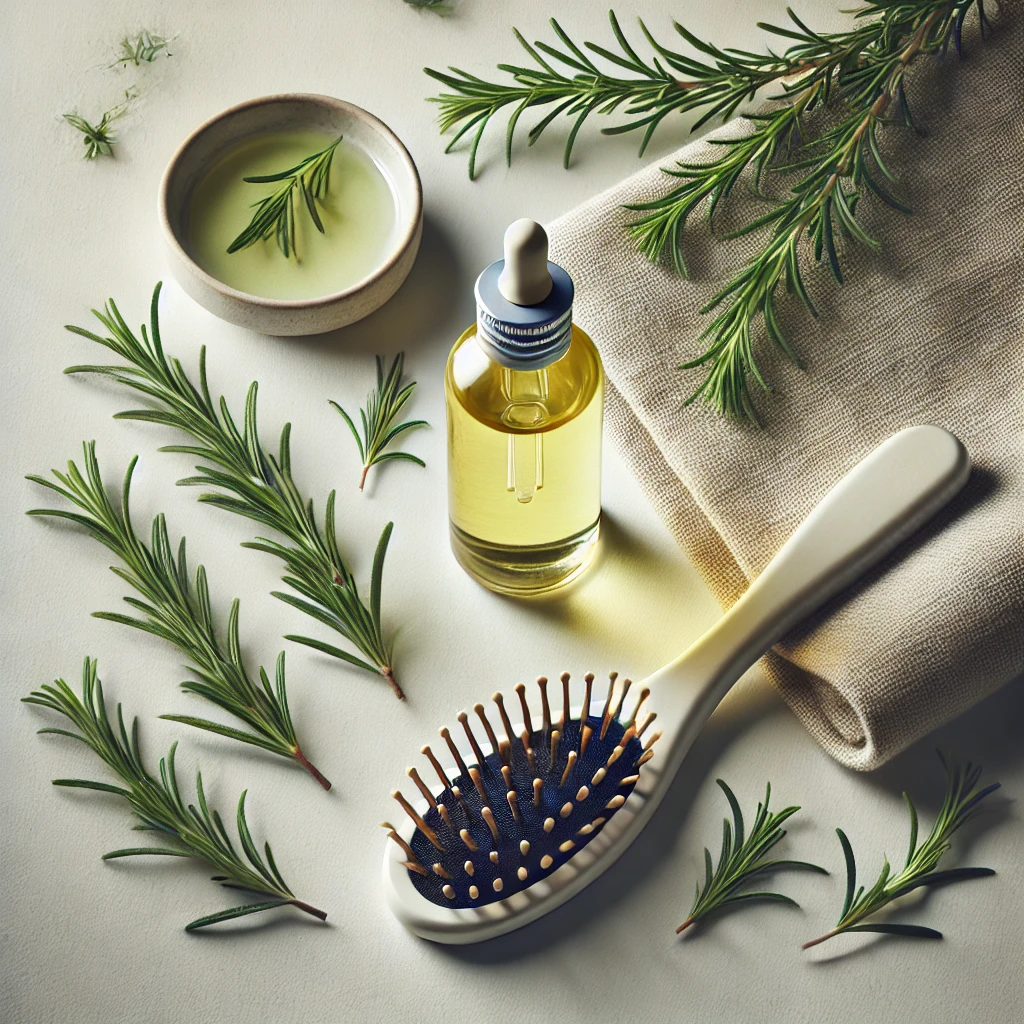
Using rosemary for your hair comes with a multitude of benefits. Let’s take a closer look at why this herb has become a go-to solution for so many.
a. Stimulates Hair Growth
Rosemary promotes faster and more robust hair growth by nourishing the scalp and stimulating dormant follicles. This effect is particularly beneficial for people dealing with thinning hair or bald spots.
b. Prevents Hair Loss
By improving blood flow to the scalp and blocking DHT, rosemary helps prevent further hair loss, especially in cases of male or female pattern baldness.
c. Strengthens Hair Strands
Weak and brittle hair is prone to breakage. The nutrients and oils in rosemary fortify each strand, resulting in stronger, healthier hair that can withstand daily stressors.
d. Reduces Dandruff and Dry Scalp
Rosemary’s antimicrobial and hydrating properties help combat dandruff and soothe dry, flaky scalp conditions. Regular use of rosemary-infused treatments can lead to a cleaner, more balanced scalp.
e. Enhances Shine and Texture
If your hair feels dull or lifeless, rosemary can help. Its natural oils coat the hair shaft, locking in moisture and creating a smooth, shiny finish.
5. How to Use Rosemary for Hair Growth
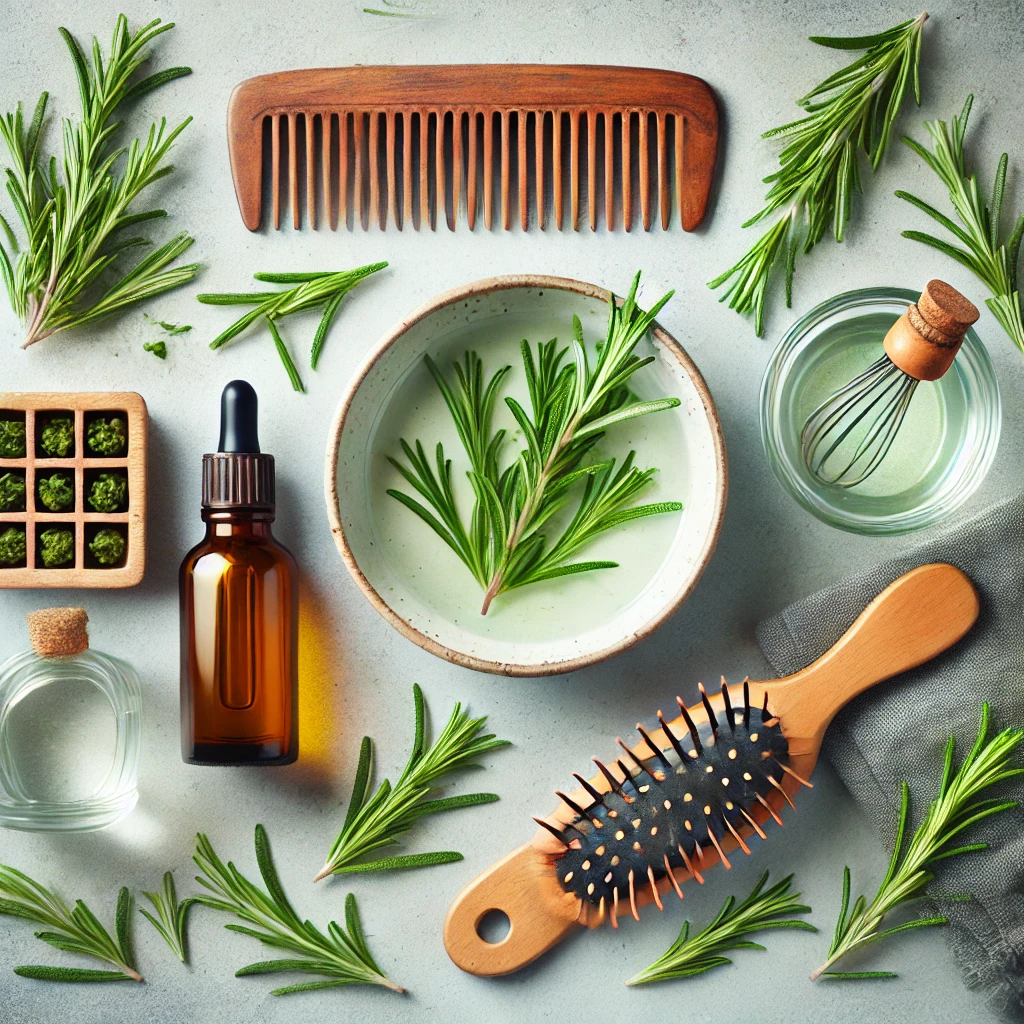
Knowing the benefits is one thing, but how do you incorporate rosemary into your hair care routine? Here are some practical and easy ways to use this herb for maximum results.
a. Rosemary Essential Oil
The most popular method is using rosemary essential oil. Mix 5-10 drops with a carrier oil like coconut, jojoba, or almond oil. Massage this mixture into your scalp for 5-10 minutes, then leave it on for at least 30 minutes before washing it out.
b. Rosemary Water
Create a simple rosemary rinse by boiling fresh rosemary sprigs in water. Let the mixture cool, strain it, and use it as a final rinse after shampooing. This method is perfect for those who prefer lighter treatments.
c. DIY Rosemary Hair Masks
Combine rosemary essential oil with ingredients like aloe vera, yogurt, or honey for a nourishing hair mask. Apply it to your scalp and hair, leave it on for 30 minutes, and then rinse thoroughly.
d. Rosemary Shampoo and Conditioner
You can also find shampoos and conditioners infused with rosemary or add a few drops of rosemary essential oil to your favorite hair products.
6. DIY Rosemary Hair Treatments
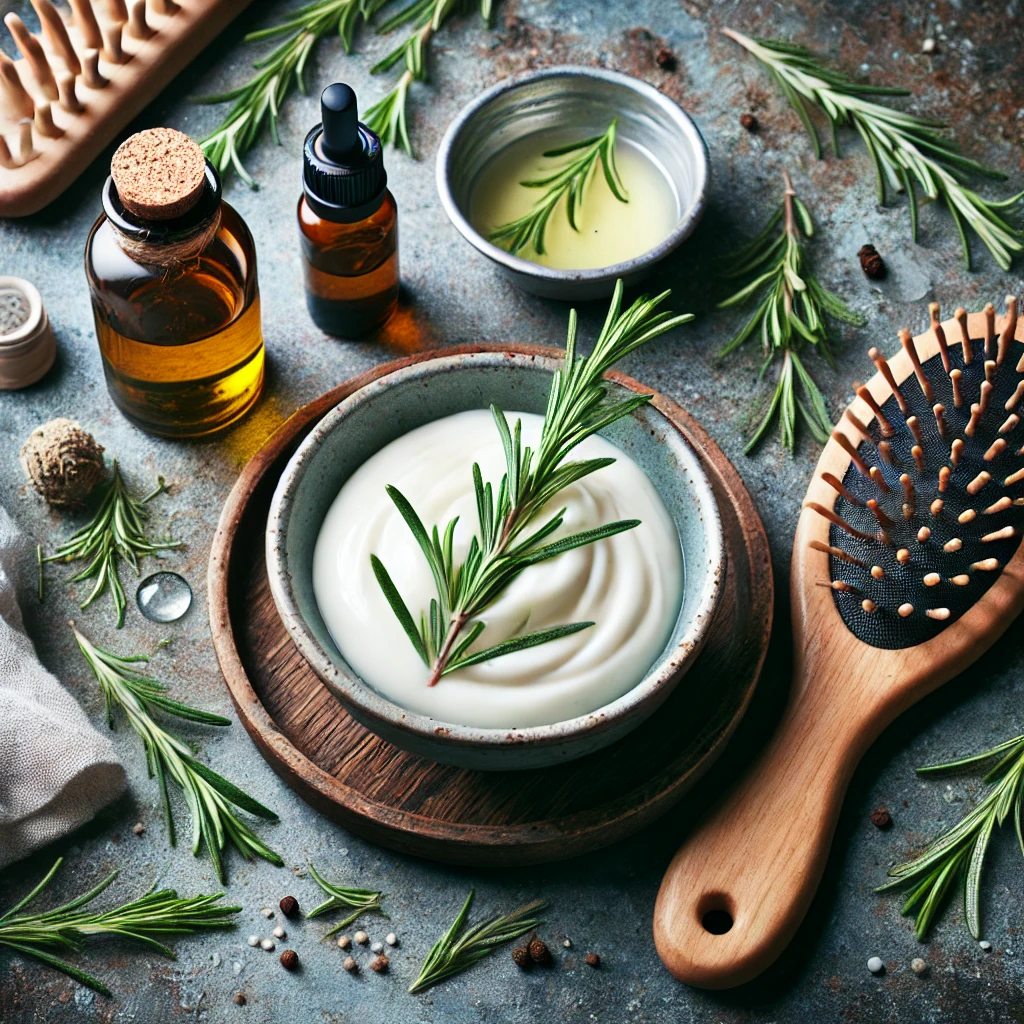
Want to try some rosemary-based remedies at home? These DIY recipes are simple, affordable, and highly effective.
a. Rosemary and Coconut Oil Hair Treatment
- Ingredients: 5 drops of rosemary oil, 2 tablespoons of coconut oil.
- Instructions: Mix the ingredients, apply to the scalp and hair, and leave it overnight. Wash off with a mild shampoo in the morning.
b. Rosemary Vinegar Rinse
- Ingredients: 1 cup of rosemary water, 2 tablespoons of apple cider vinegar.
- Instructions: Combine the ingredients, pour over freshly washed hair, and rinse after 5 minutes.
c. Rosemary Scalp Spray
- Ingredients: 1 cup of rosemary water, a spray bottle.
- Instructions: Pour the water into the bottle and spritz your scalp daily to refresh and nourish.
7. Best Practices for Rosemary Application
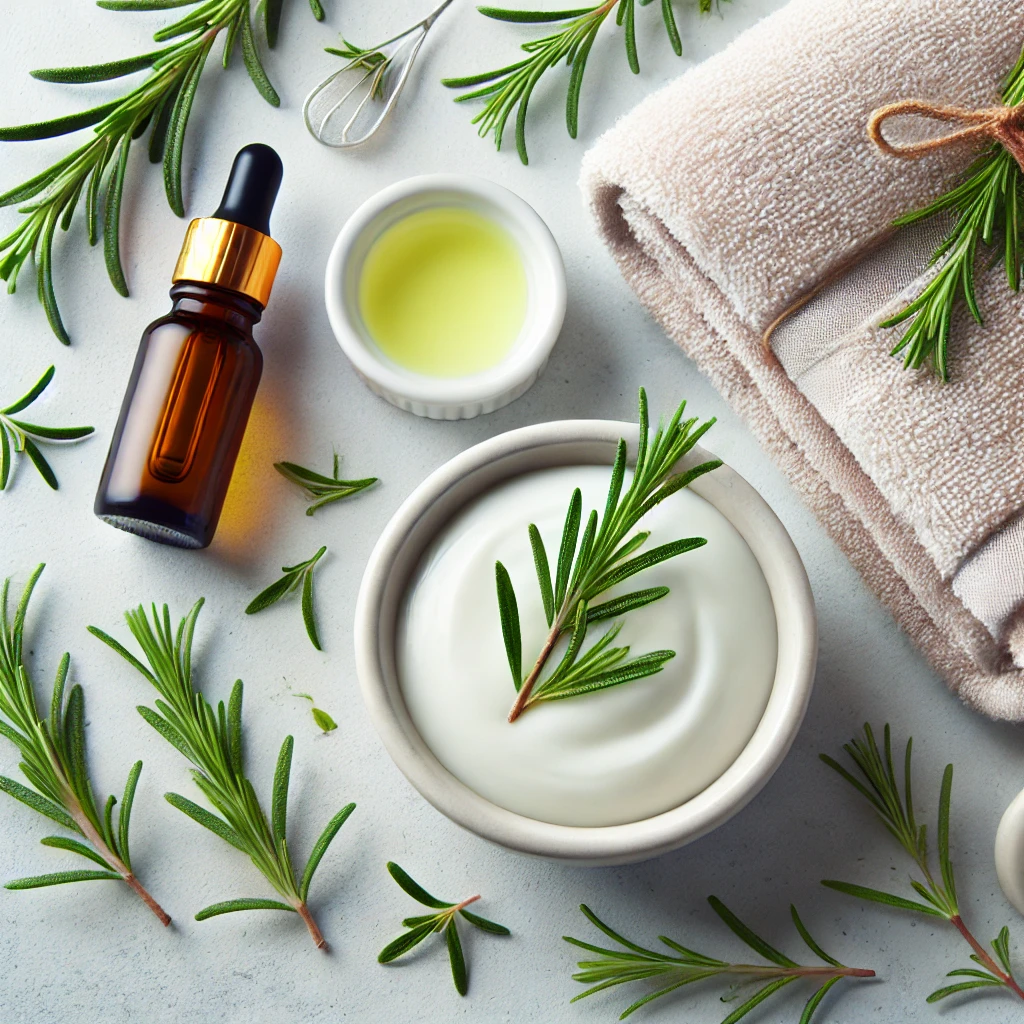
a. Be Consistent
Hair growth requires patience. Use rosemary treatments at least 2-3 times a week for noticeable results over a few months.
b. Don’t Skip the Patch Test
Before applying rosemary oil or any new product to your scalp, test it on a small area of your skin to ensure you’re not allergic.
c. Combine with a Healthy Lifestyle
While rosemary can work wonders, pairing it with a balanced diet, regular hydration, and stress management will amplify its effects.
By integrating rosemary into your routine, you’re setting the stage for healthier, stronger, and shinier hair. Why not start today?
8. Common Myths About Rosemary for Hair
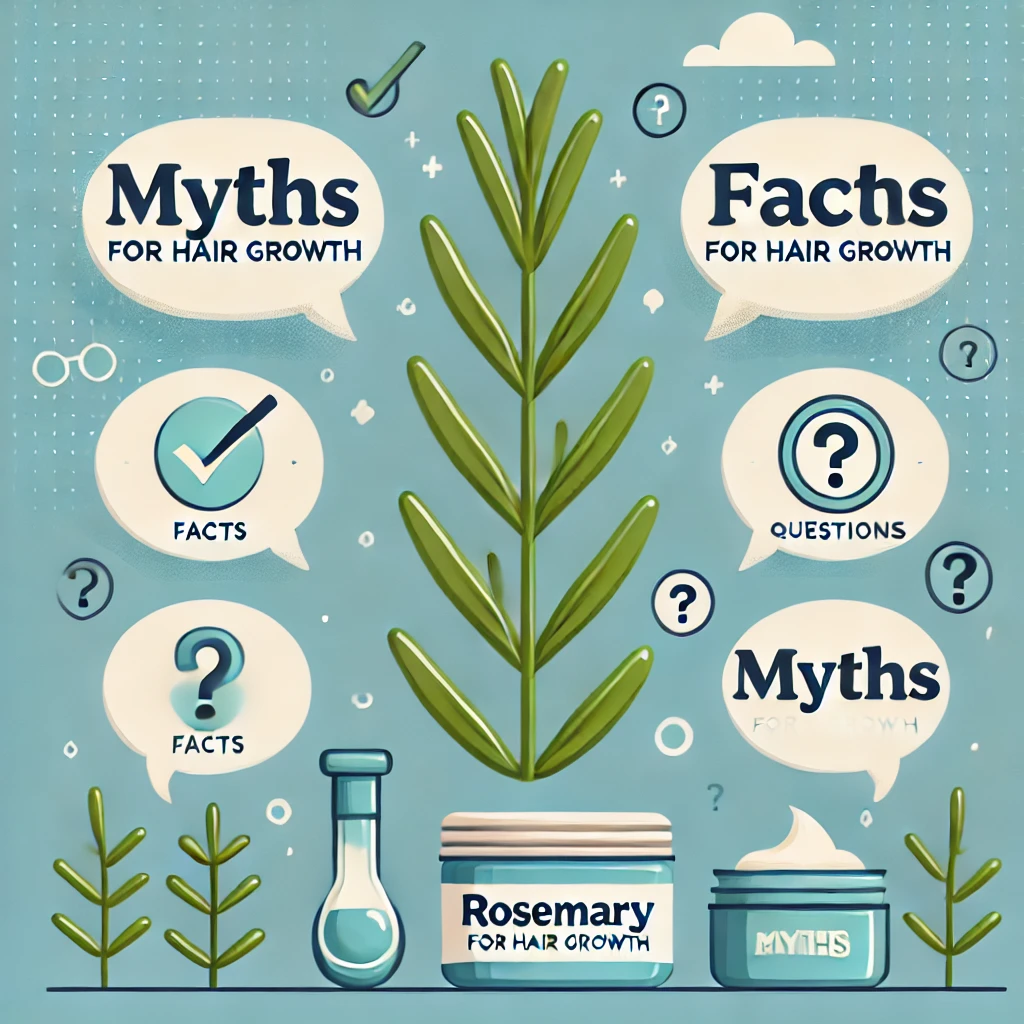
With so much buzz around rosemary for hair growth, it’s easy to stumble upon some myths. Let’s separate fact from fiction.
Myth 1: Rosemary Delivers Instant Results
It’s common to wish for a magical, overnight hair transformation, but rosemary doesn’t work that way. Hair growth is a gradual process that typically takes 3-6 months to show noticeable improvement, even with consistent use.
Myth 2: Rosemary Can Cure Baldness Completely
While rosemary can significantly improve hair thickness and reduce hair fall, it isn’t a miracle cure for permanent baldness caused by genetic factors. It works best for stimulating hair follicles that are still active.
Myth 3: The More Rosemary You Use, the Better
Overloading your scalp with essential oils can lead to irritation and adverse effects. Dilution is key when using rosemary oil, and moderation ensures safe and effective results.
Myth 4: Only Fresh Rosemary is Effective
Both fresh rosemary and rosemary essential oil are effective for hair care. Essential oils are more concentrated and potent, while fresh rosemary is ideal for DIY rinses and infusions.
9. Precautions and Side Effects
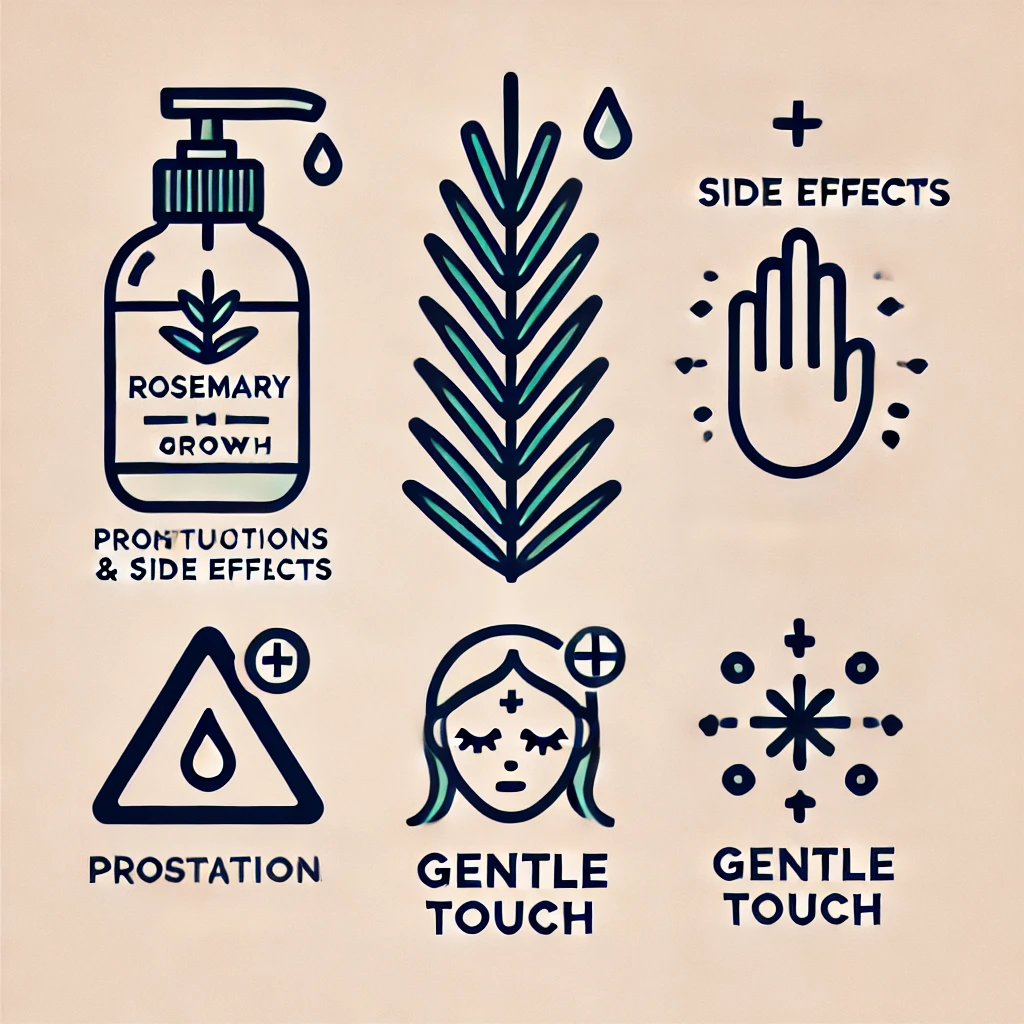
While rosemary is a natural and generally safe remedy, there are a few precautions to keep in mind to avoid any adverse effects.
a. Avoid Direct Use of Essential Oil
Never apply rosemary essential oil directly to your scalp without diluting it. Pure essential oils are highly concentrated and can cause scalp irritation or burns.
b. Conduct a Patch Test
Always test rosemary oil on a small patch of skin before using it on your scalp. If redness, itching, or irritation occurs, discontinue use.
c. Pregnancy and Medical Conditions
Pregnant women and individuals with certain medical conditions should consult their doctor before using rosemary treatments, as the herb can stimulate circulation and potentially have unintended effects.
d. Avoid Contact with Eyes
When using rosemary treatments, ensure they don’t come into contact with your eyes, as the essential oils can cause stinging and irritation.
10. Rosemary vs. Other Hair Growth Remedies
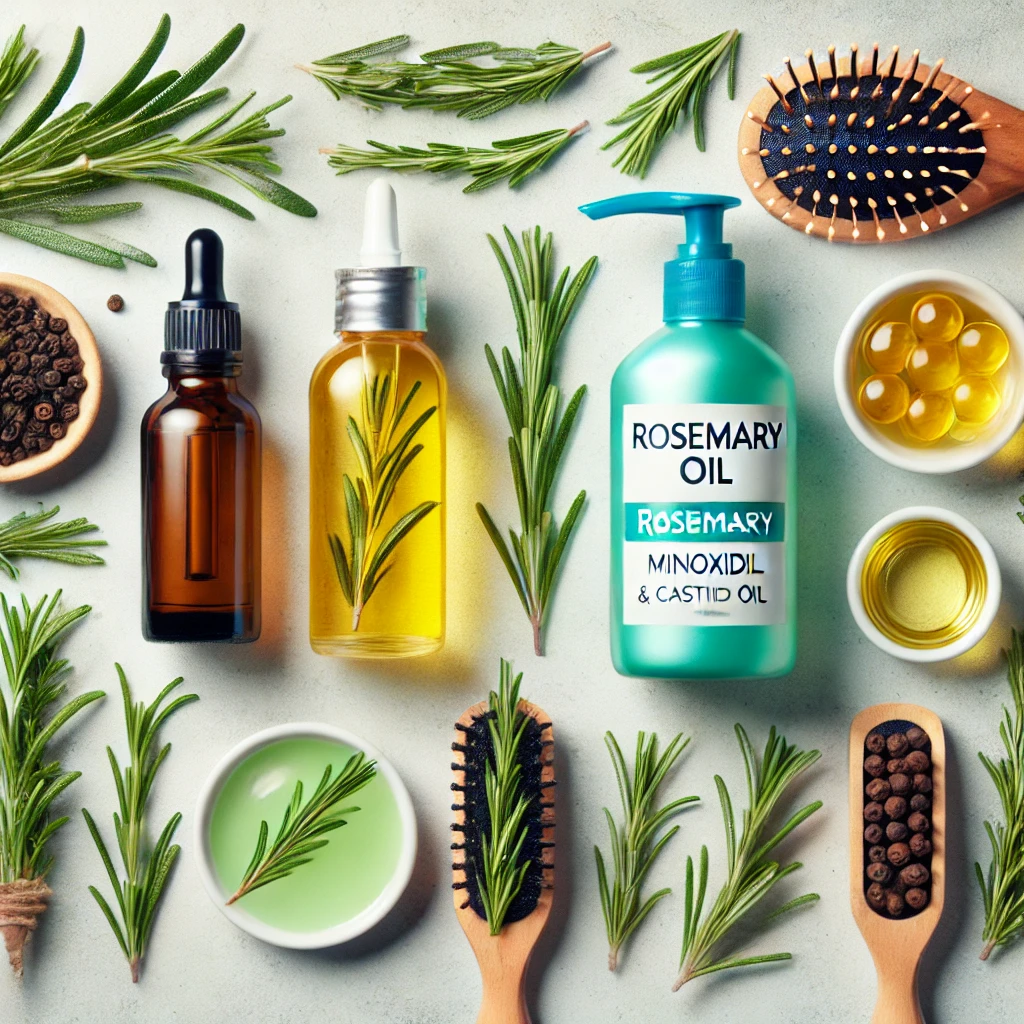
How does rosemary stack up against other popular hair growth solutions? Let’s compare.
a. Rosemary vs. Minoxidil
Minoxidil is a widely used chemical treatment for hair growth. While effective, it often comes with side effects like dryness and irritation. Rosemary provides a gentler, natural alternative with similar benefits when used consistently over time.
b. Rosemary vs. Castor Oil
Castor oil is another favorite for hair growth due to its thick texture and ability to lock in moisture. However, rosemary has added benefits, such as boosting scalp circulation and combating dandruff.
c. Rosemary vs. Onion Juice
Onion juice is praised for its high sulfur content, which promotes hair growth. However, its strong odor and potential to irritate sensitive skin make rosemary a more user-friendly option.
d. Rosemary vs. Aloe Vera
Aloe vera soothes the scalp and provides hydration, while rosemary focuses on stimulating growth and improving circulation. Both can be combined for a holistic approach to hair care.
11. Success Stories: Real-Life Results

Hearing real-life experiences can inspire confidence in rosemary’s effectiveness. Many users have shared their journeys online, praising rosemary for its ability to transform their hair.
Case Study 1: Reversing Hair Thinning
A 35-year-old woman reported significant improvement in hair thickness after using rosemary oil for six months. She incorporated weekly scalp massages and noticed reduced hair fall and healthier strands.
Case Study 2: Combatting Postpartum Hair Loss
A new mom struggling with postpartum hair loss turned to rosemary water as a natural remedy. Within four months, she saw baby hairs regrowing around her hairline.
Case Study 3: From Dry and Dull to Shiny and Soft
A 28-year-old man with dry and brittle hair began using rosemary oil combined with a carrier oil twice a week. After consistent use for three months, his hair appeared shinier and more manageable.
12. Integrating Rosemary Into Your Hair Care Routine

Making rosemary a part of your routine is easy and versatile. Here’s how you can seamlessly incorporate it:
a. Weekly Scalp Massages
Dedicate a few minutes each week to massaging diluted rosemary oil into your scalp. This ritual not only promotes hair growth but also feels incredibly relaxing.
b. Replace Your Conditioner with a Rosemary Rinse
If you prefer natural alternatives, swap out your usual conditioner for a rosemary water rinse. It will leave your hair soft and smelling amazing.
c. Add Rosemary to Your Shampoo
For a quick and effortless solution, mix a few drops of rosemary essential oil into your regular shampoo. This way, you’re nourishing your scalp every time you wash your hair.
By customizing these methods to suit your lifestyle, you’ll find that rosemary can easily become a staple in your hair care routine.
Keep exploring the possibilities, and before long, you might just find yourself amazed by the results!
13. Conclusion

Rosemary for hair growth is not just a passing trend; it’s a natural remedy backed by science, tradition, and real-life success stories. Whether you’re looking to combat hair thinning, boost growth, or simply improve the overall health of your hair, rosemary offers an affordable, effective, and chemical-free solution.
The versatility of rosemary makes it suitable for all hair types, and its ease of use ensures that even the busiest individuals can incorporate it into their routines. From essential oil massages to DIY hair rinses, rosemary can fit seamlessly into your lifestyle.
Remember, consistency and patience are key when using rosemary for hair growth. Hair grows at its own pace, so give it time to show results. With regular use, rosemary can transform your hair care routine, leaving you with healthier, stronger, and more vibrant locks.
14. Frequently Asked Questions
1. Can I leave rosemary oil on my scalp overnight?
Yes, you can leave diluted rosemary oil on your scalp overnight. This allows the nutrients to penetrate deeply, but make sure to wash it out in the morning to avoid buildup.
2. How often should I use rosemary oil for hair growth?
For best results, use rosemary oil 2-3 times a week. Consistency is crucial for noticeable improvements in hair growth and texture.
3. Can rosemary oil be mixed with other oils?
Absolutely! Rosemary oil pairs well with carrier oils like coconut, jojoba, or argan oil. You can also mix it with other essential oils like lavender or tea tree for added benefits.
4. Does rosemary oil work for all hair types?
Yes, rosemary oil is suitable for all hair types, including straight, curly, wavy, and coily hair. It’s especially beneficial for those experiencing hair thinning or scalp issues.
5. Can I use rosemary if I’m experiencing severe hair loss?
While rosemary can help with mild to moderate hair loss, severe cases may require medical intervention. It’s always a good idea to consult with a dermatologist or trichologist for a tailored approach.
By embracing rosemary in your hair care routine, you’re taking a step toward healthier, more vibrant hair in the most natural way possible. Why not start your rosemary journey today? Your hair will thank you!






